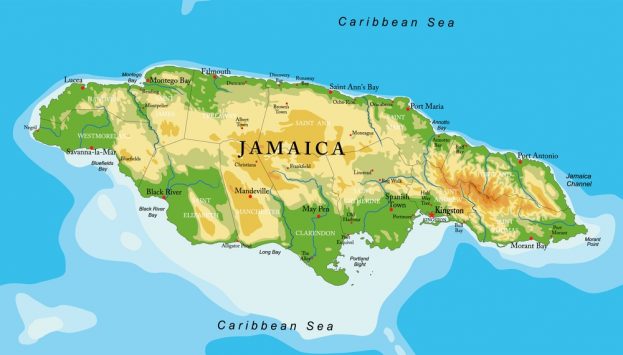There has been much talk in the United States about the threat posed by “big government” to civil liberties and to laissez-faire economics. Nothing seems more virulent than the tension posed by the imposition of guardrails with their concomitant oversight on the behaviour of “big business” by government entities.
“The captains of industry,” for many years, were left pretty much on their own to do as they pleased or as they thought best in their pursuit of profit. They were trusted to police themselves against any excesses and vice that could affect the vibrancy of the economy and the health and the safety of citizens. But after a few economic downturns, including “The Great Depression,” which occurred between August 1929 and March 1933, and which was largely of their own making, the government decided to step in.
The failures of industry, which resulted in The Great Depression, created fallow ground for the seeds of The New Deal, which was a series of programmes, public work projects, financial reforms, and regulations enacted by President Franklin D. Roosevelt between 1933 and 1939. Such things as federal work programmes, increased rights for labour, social security and environmental improvement programmes were not only indicative of some of the needs brought about by the economic crash, but were also indictments against “big business” in respect to the policing of itself. The gaps that it tended to leave while in its pursuit of profit at the expense of the welfare of its workers, their families and the wider society were telltale signs.
Though it is true that the nation benefited materially from their activities, the side-effects of their quest revealed quirks in capitalism that were unsustainable in respect to the overall well-being of society. The Industrial Revolution was a blessing and a curse.
It is well known that there are political interests, both in and out the U.S. Government, whose sole purpose is to promote, protect, placate and pardon any excesses on the part of industry in the cause of its “bottom line.” Tax exemptions for the wealthy are just some of the perks sought to be added to their humungous coffers which are already bursting at the seams. Who is to watch the foxes as they watch the henhouse? Who is to guard against the sort of thing outlined in the Scientific American published in 2015: “Exxon was aware of climate change, as early as 1977, 11 years before it became a public issue, according to a recent investigation from Inside Climate News. This knowledge did not prevent the company (now ExxonMobil and the world’s largest oil and gas company) from spending decades refusing to publicly acknowledge climate change and even promoting climate misinformation — an approach many have likened to the lies spread by the tobacco industry regarding the health risks of smoking”? Can industry be trusted?
The tension between government regulations and oversight, on the one hand, and that of industry on the other has reached global proportions. The COP26 UN Climate Change Conference, hosted by the United Kingdom in partnership with Italy, now taking place in the UK since the 31st of October to the time of the writing of this article, serves as evidence of this.
After the advent of the Industrial Revolution, which occurred between 1760 and 1840, over 181 years ago, can industry be relied upon to police itself? What do the protests in the streets now and in the years preceding seem to suggest? And what can chattel slavery of Black people for hundreds of years, which preceded the Industrial Revolution, tell us about the likelihood, the willingness and the speed of industry, and yes, in many respects, of the governments of the world which are now complicit and, therefore, culpable in nullifying the alarming and deleterious effects of Global Warming?
The issue of slavery was another iteration of the unchecked quest of Europeans for great wealth and power. The effect on the environment was as much an issue then, as it is today. But, greater then was the dehumanizing, the debilitating and the destruction of human life than it is now.
In 1783, an anti-slavery movement began in Britain. That year a group of Quakers founded their first abolitionist organisation. The Quakers continued to be influential throughout the lifetime of the movement, in many ways leading the campaign. It was 50 years from that time, with the yeoman efforts of the likes of Olaudah Equiano and William Wilberforce before slavery was abolished in1833. That victory in Parliament and within the British empire occurred 32 years ahead of the abolition of that scourge on the world in the United States where its legacy is still an open wound.
The struggle of Black Lives Matter is the latest fissure of pent up anger, impatience and frustration of an age old cry brought on by the selfishness, the greed, the injustice and the inequity of some in the American society and, indeed, the world. The problems of racism and of high levels of carbon emissions are linked to the same spirit and mentality.
If the world, therefore, cannot succeed in its fight against racism, then it is not likely to succeed in its fight against Global Warming. The prejudice against races and the disenfranchised in society is also the same against the environment. They are, indeed, inseparable. What, therefore, is of greater concern, at a more fundamental level — even more than striving to achieve acceptable levels of carbon emissions, to discourage deforestation and the pollution of our rivers, lakes, swamps and oceans — is tackling the ideological flaws within the economic and within the political systems which gave rise to all those issues.
The COP26 UN Climate Change Conference is a noble endeavour and it ought to be encouraged, supported and applauded. But it is, perhaps, as one tending to the branches and to the leaves of a tree while ignoring its roots. It is also safe to assume that the fight for the survival of our democratic values is tied, inextricably, to the struggle against the same powerful undercurrents which have created the awful swells of crises among the races and within nature itself.
There are no easy solutions, but there is something that is essential in any effort to effectively deal with the aforementioned challenges and with the other vicissitudes of life such as racism — and that is the quality that we know as courage. For all their faults and their failings such things as the Paris Climate Accords and the COP26 UN Climate Change Conference are fruits of the hard work of courageous people — both in and out of industry, and both in and out of government — who are and who might remain unknown to the world.
This writer does not believe that such international efforts are all side shows, or merely the doling out of crumbs to pacify the restless masses. Just getting leaders to recognize the problem of Climate Change, and nations to come together to talk, yes, just to talk about the matter, is a measure of success. What is far worse than believing that “accords” and “conferences” are all a sham and a waste of time is for them to fade away. Arnold Schwarzenegger was right when he said that “Political courage is not political suicide.” Oh, for a little courage.



